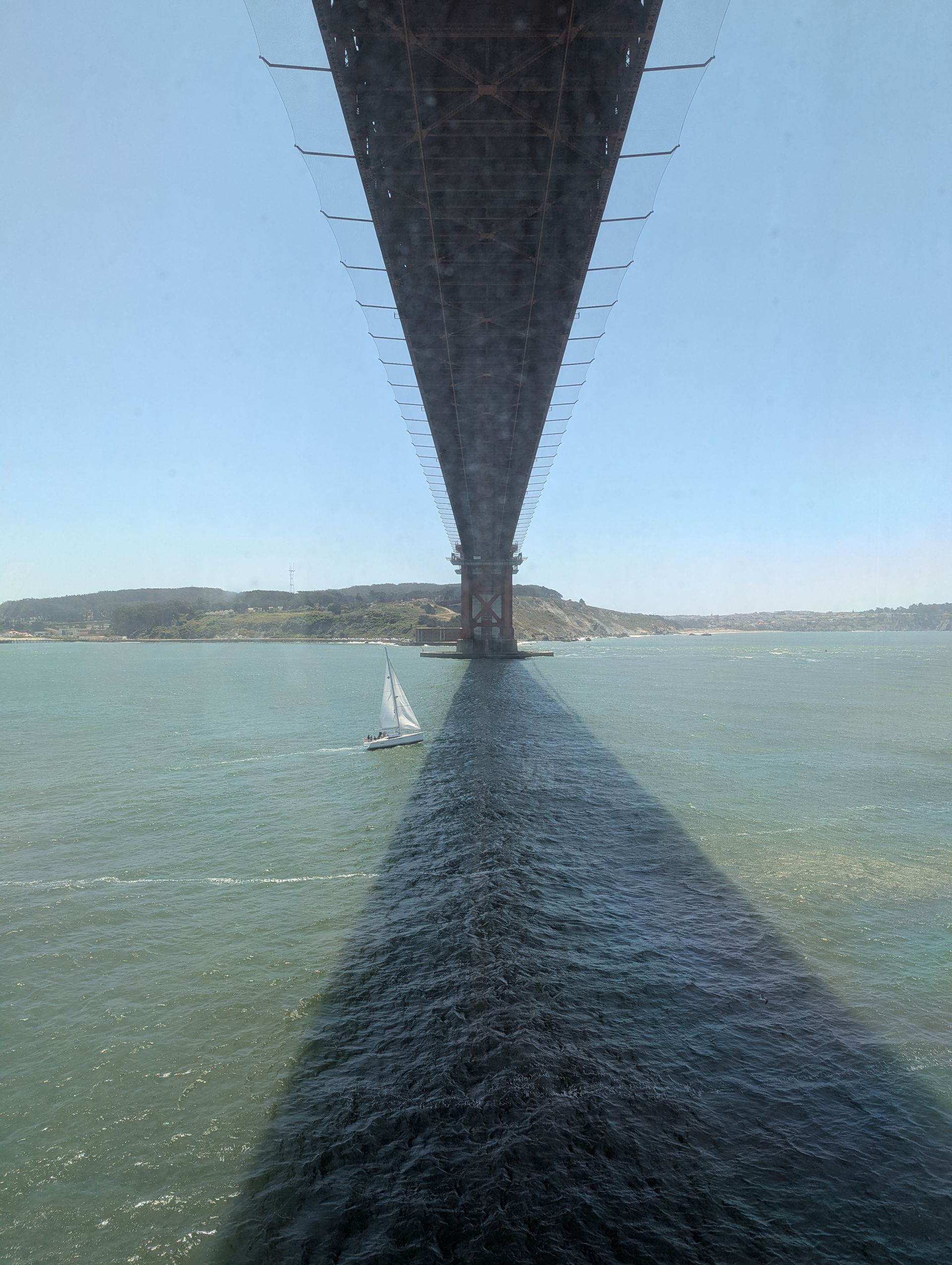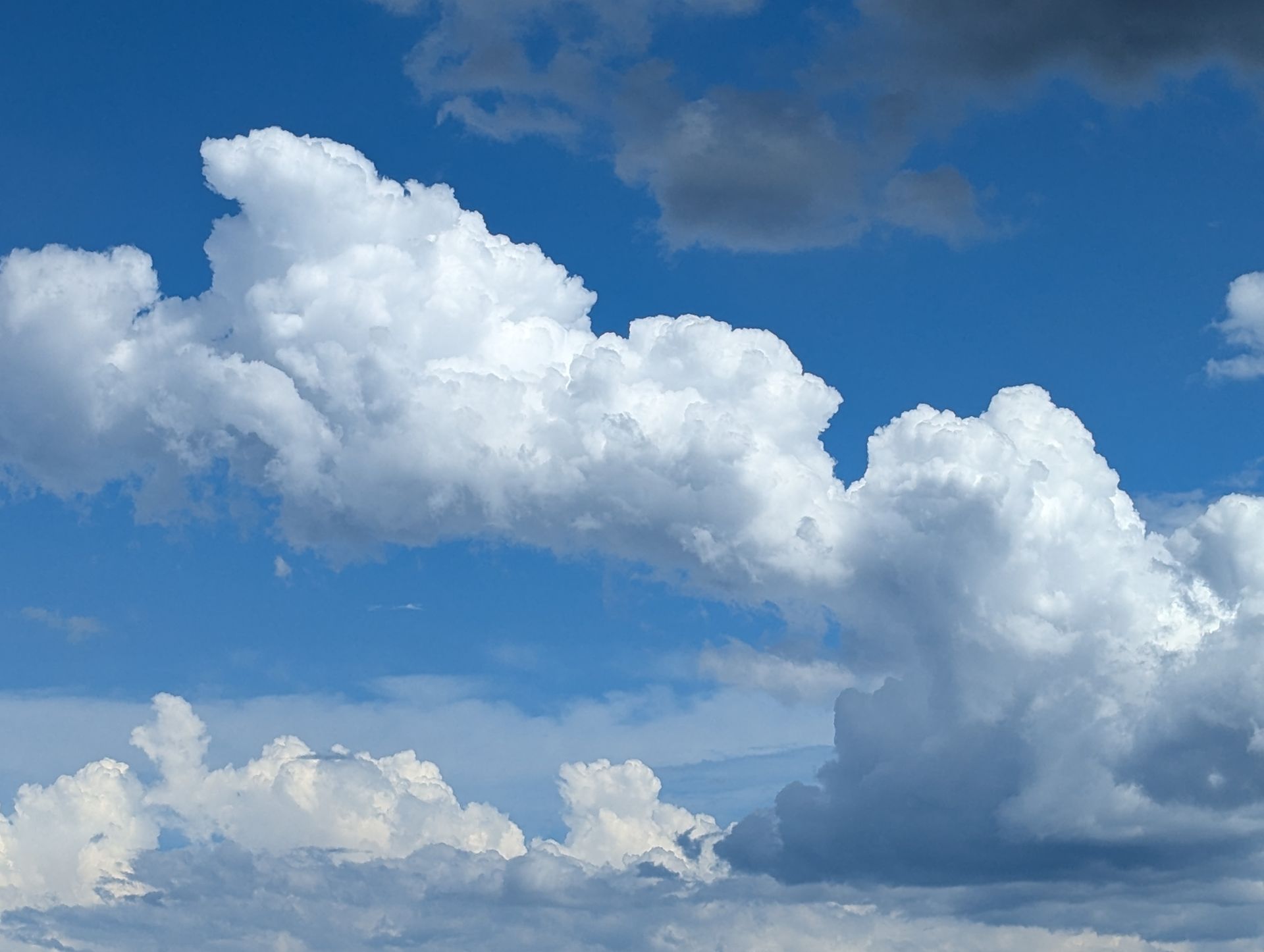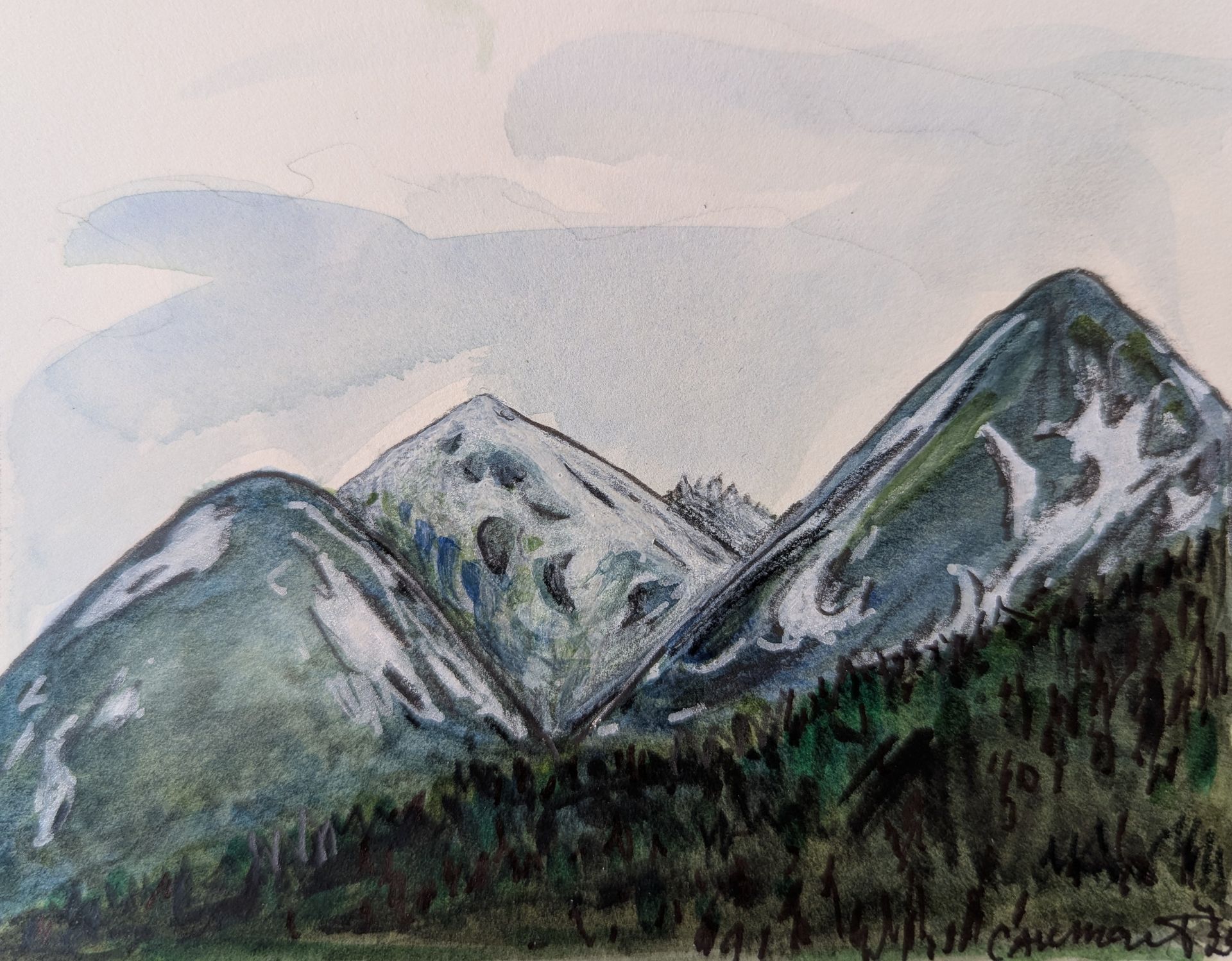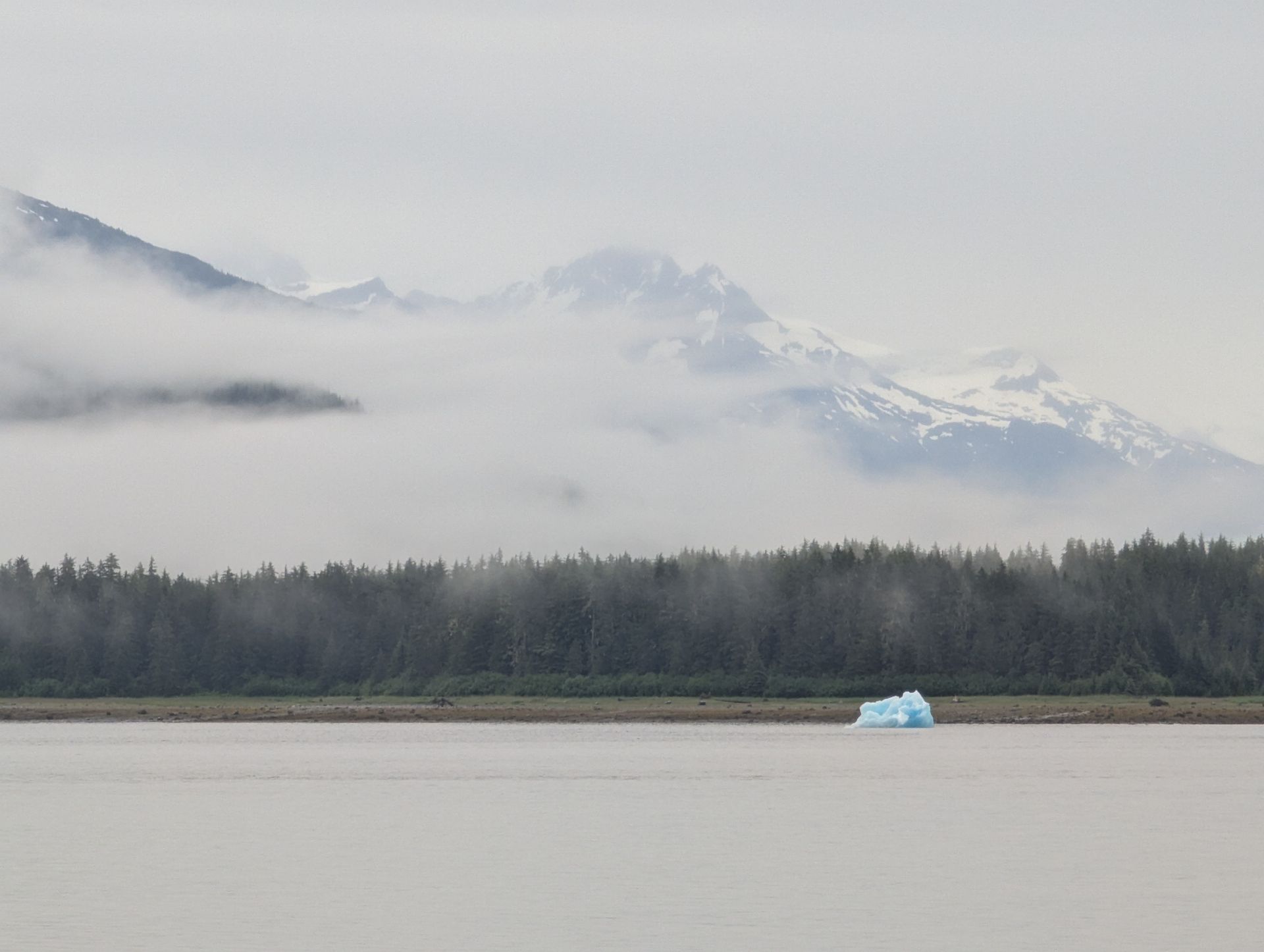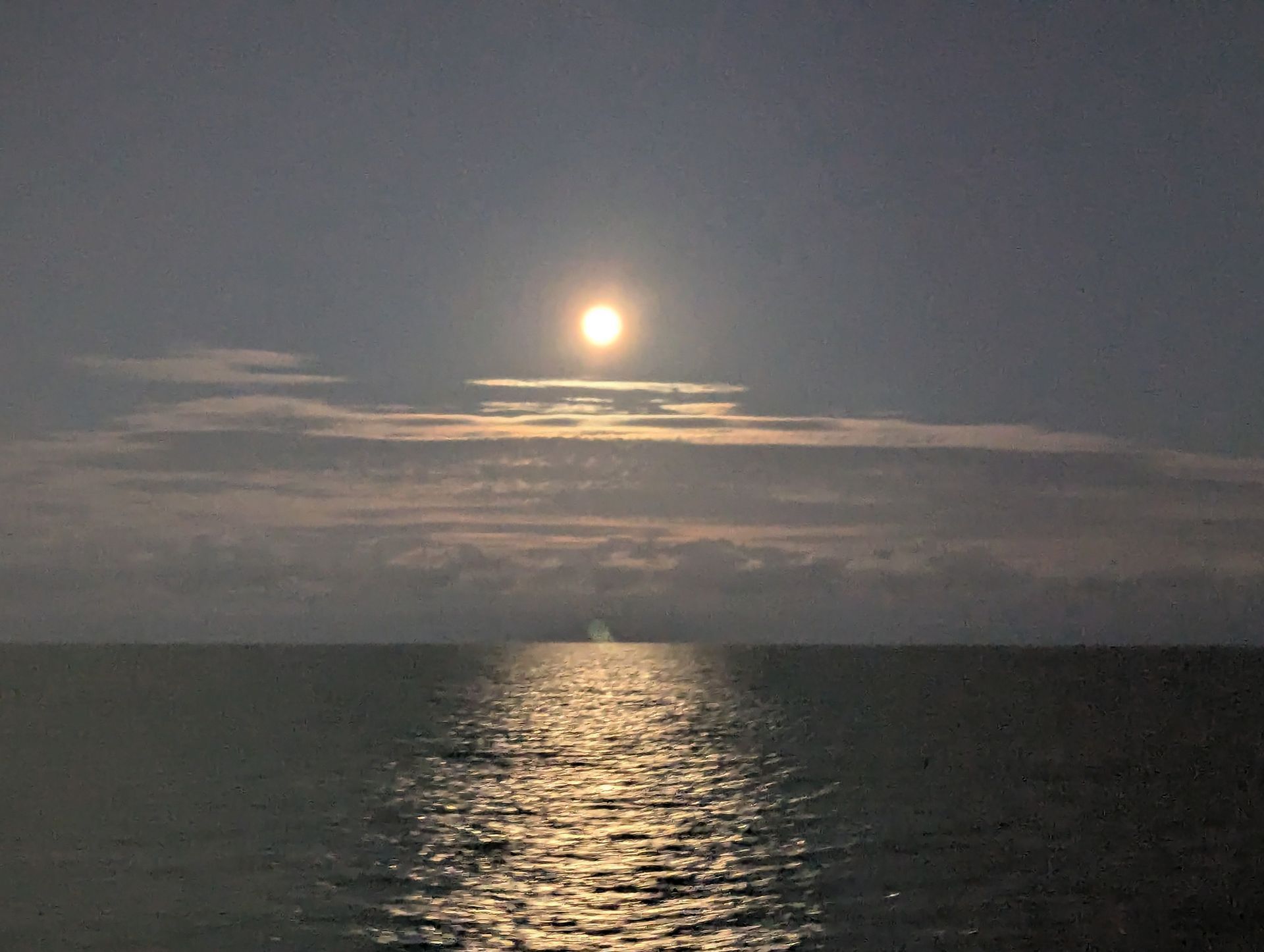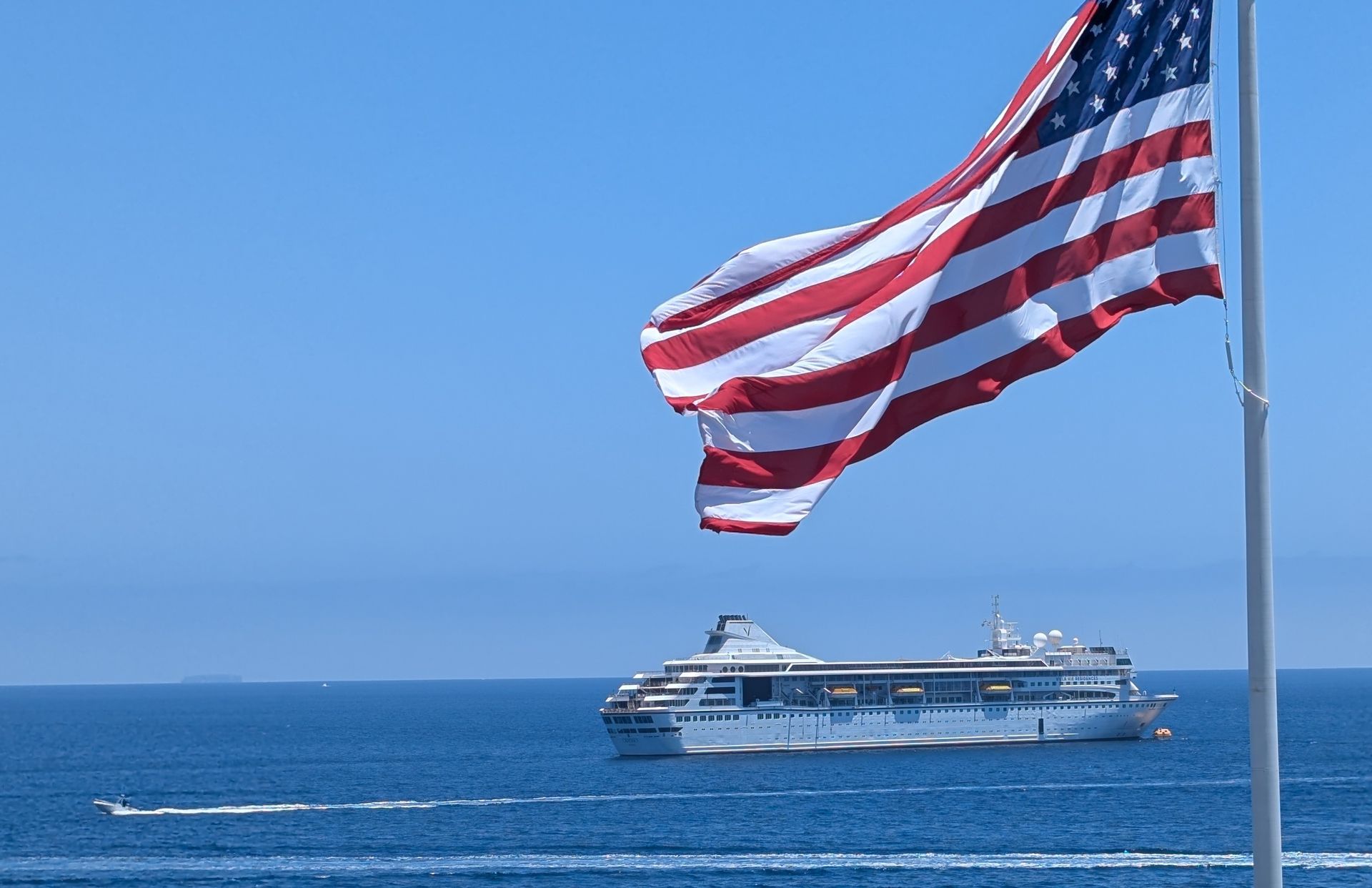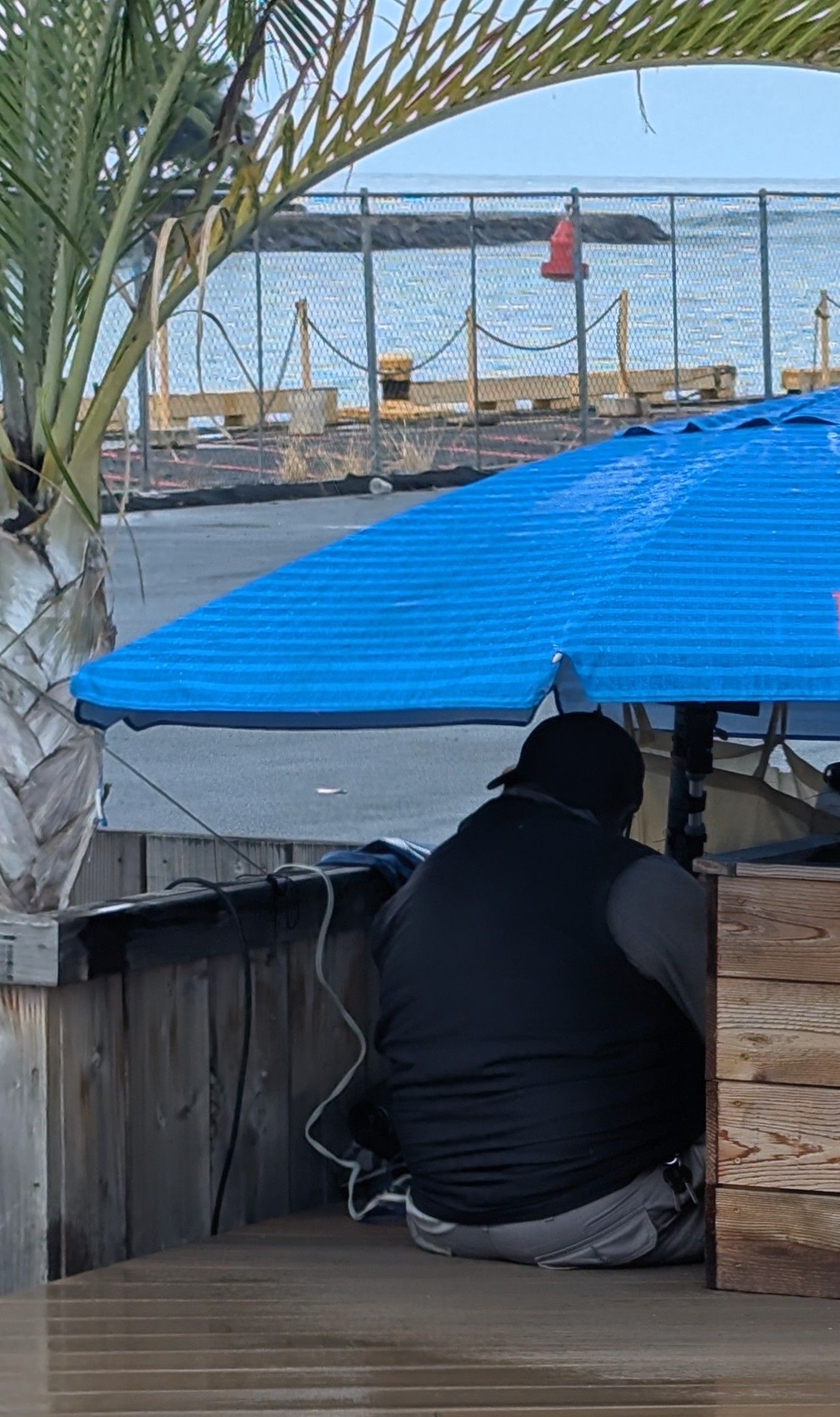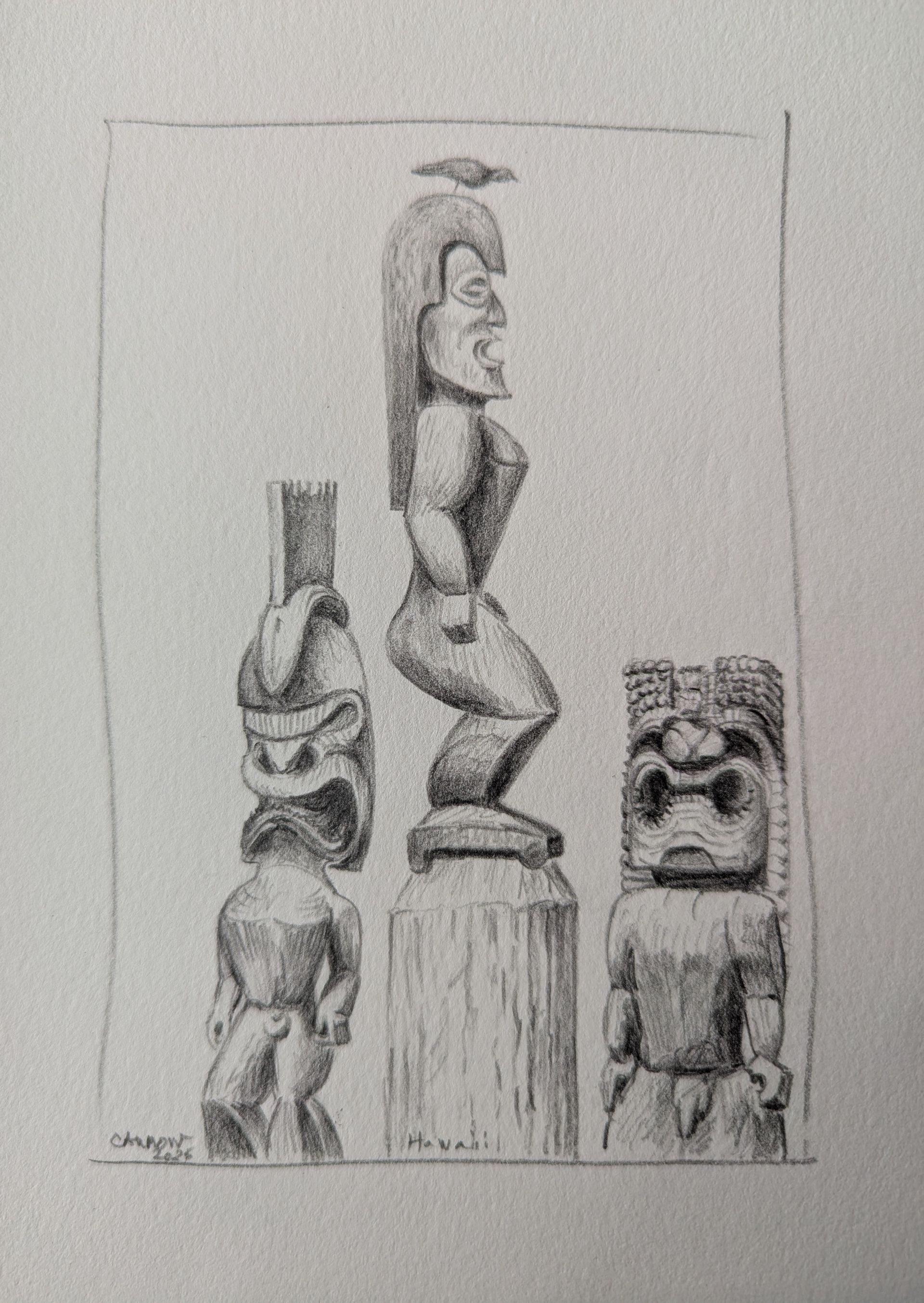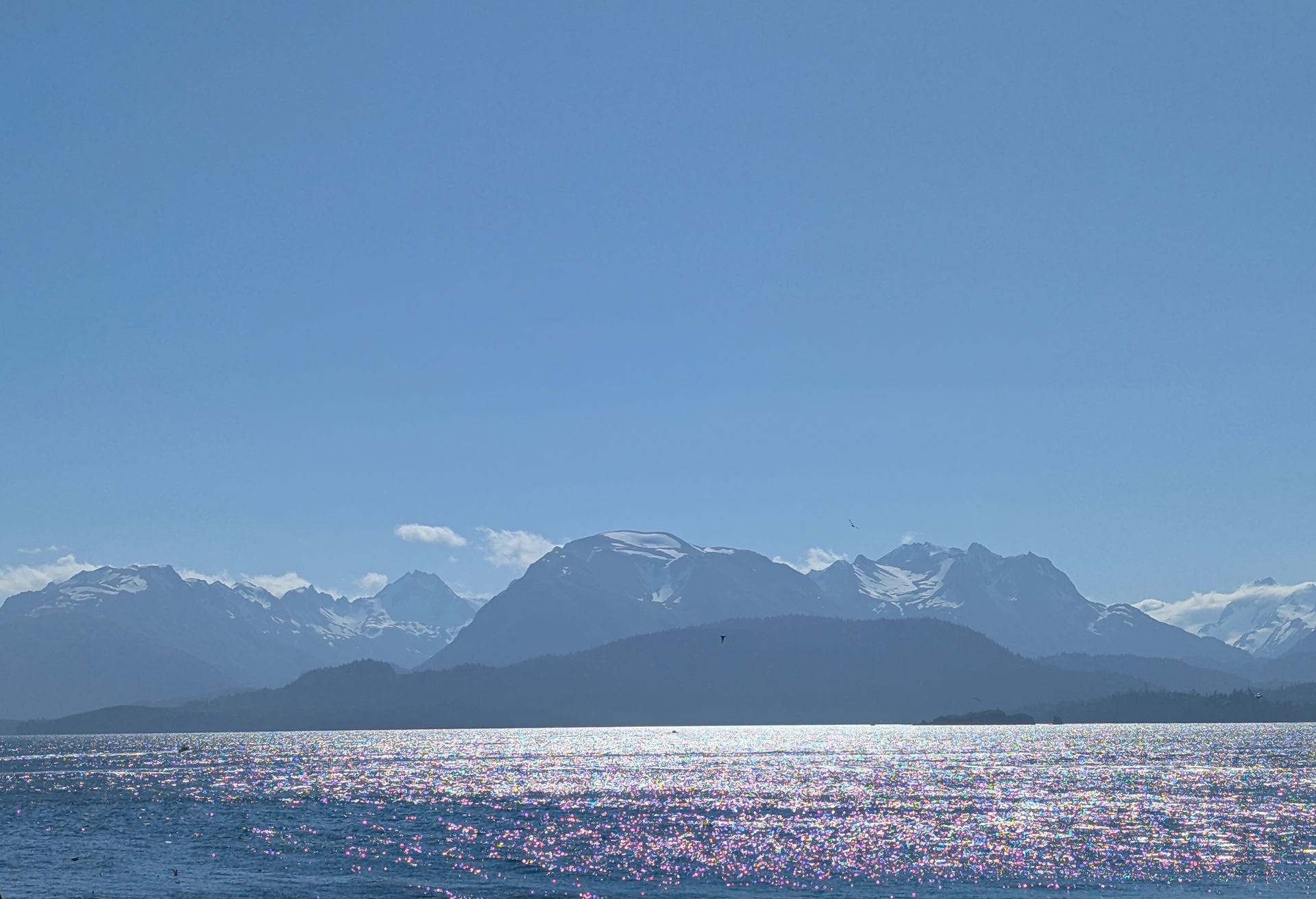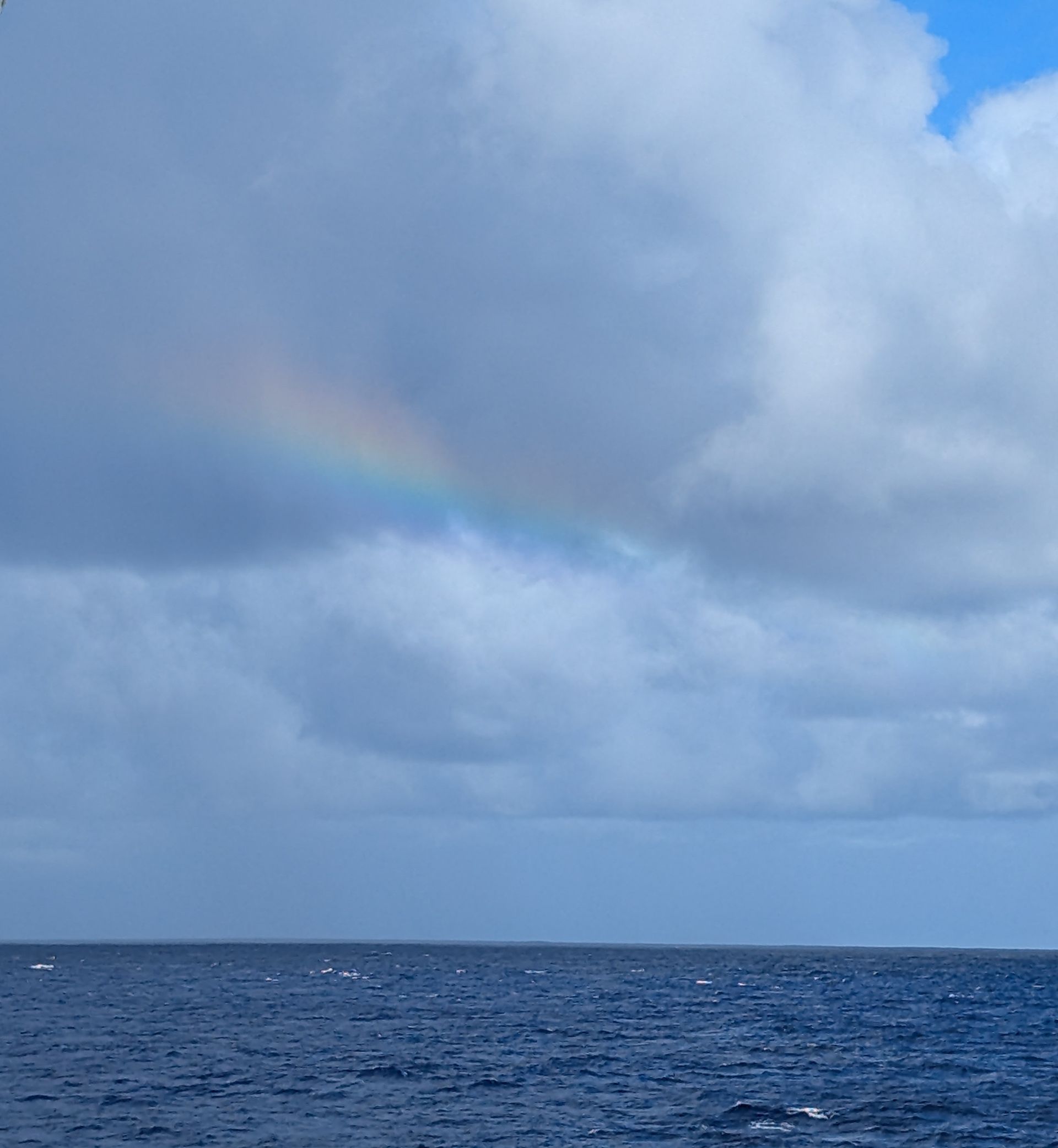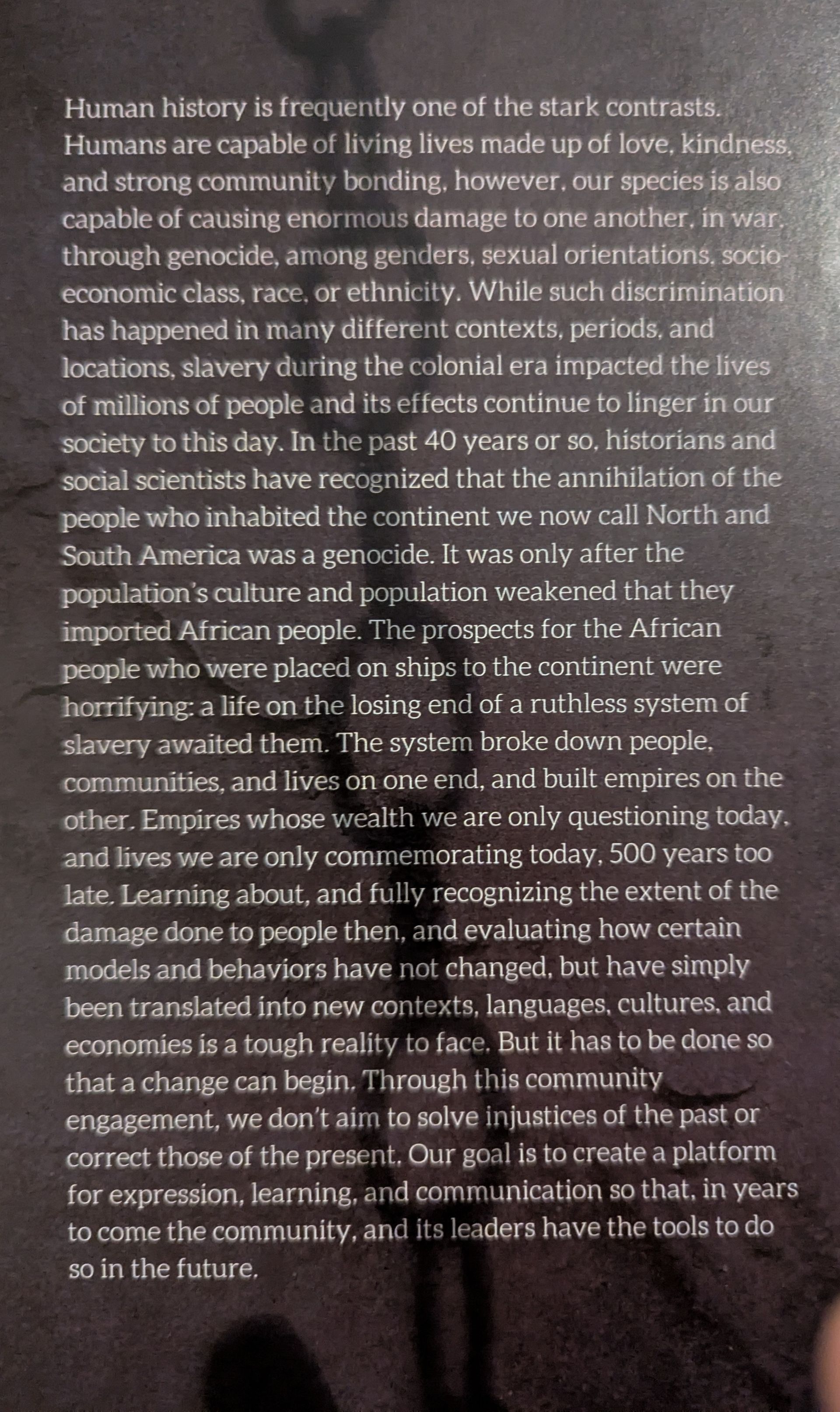Chapter 8: Cruising Around the World
The United States, chapter 8
San Diego, June,17 - San Francisco, June, 22
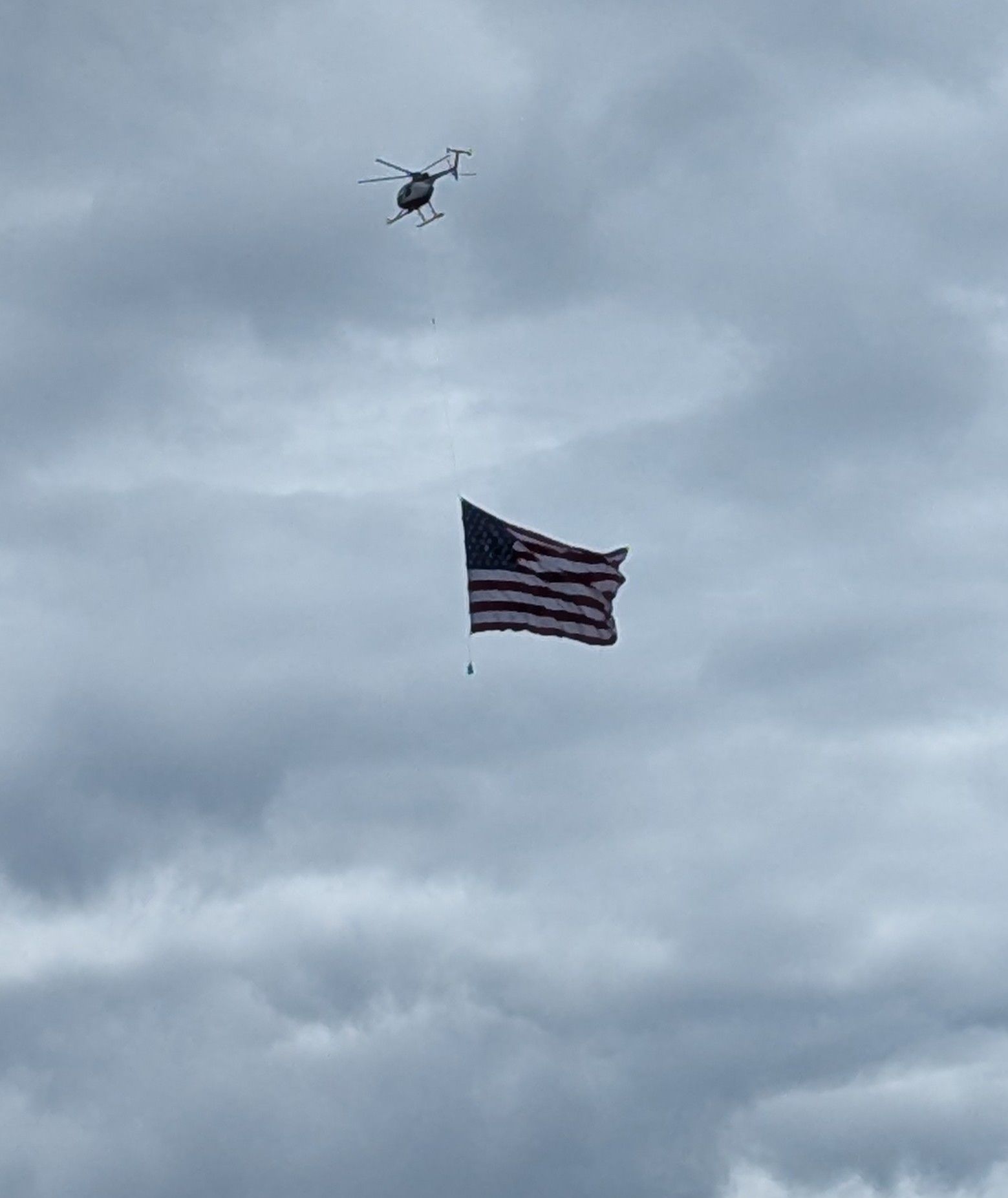
We have just left San Diego. We are plowing through 12 foot swells to San Francisco. Rocking a bit. “Hobby horsing”, Jeff calls it. Great for sleeping. You plunge then rise, dream of riding the sea on a golden sea horse, its body streaming silver water past you, your arms around its neck, (which feels surprisingly soft, not scaley), it whinnys with joy, you are laughing, we cannot stop, it could make you insane. A seagull rises from nowhere, floating in the air. I am back inside the ship.
It is getting crowded in the observatory. Many passengers have come to watch our approach to the harbor of San Francisco. The Golden Gate Bridge is just visible, a smokey grey web between the coastal hills. People are talking, the quiet is gone. Approaching land from the sea holds every possibility, but only until you set foot there. Then memories, old experiences and habits kick in. This is where you were born, where you have lived most of your life. The water places and their mysteries are receding, pushed aside. Some passengers are reluctant to see it go, others are talking about going sightseeing, renting a sea plane or a tour. We will be under the bridge soon. There is mystery and sadness there. That is where trolls live and some people will take shelter, their possessions beside them as they sleep. “Are you going off the ship?” someone asks. “ No, I have seen it.” The sharp white tooth of a raised sail is visible ahead of us as we approach the bridge. It looks like the little sailboat will go under alongside us. Good sailing weather, 15 knots from the east. There is plenty of room under the bridge and many more sailboats on the other side. Our Captain announces “the famous Alcatraz”, to the starboard. It is the weekend, people are at play, many sailboats and windsurfers out, dodging the ferries, fishing boats and cruise ships. This is a huge harbor, a massive city, not as self conscious and on display as San Diego. This city has complexity, racial mixing, potential for change, more like NYC and other World cities.
We have left San Francisco and continue up the west coast. The sea is calm and the captain is proceeding very slowly as we pass through a huge pod of whales, maybe 30 of them. This has been going on for about two hours, the sightings of clusters and singletons over several miles. Sometimes the dark back and neat dorsal triangle appear, then maybe a tail strokes the sky gently, gracefully, or a hint of dark just below the surface precedes spouting and more spectacularly, rolling, which exposes the white sidewall of an orca. One passenger screams with delight. This is the first whale she has ever seen. Later I read that orca are considered part of the dolphin family and that all dolphins are whales but not all whales are dolphins.
Now that we have been visiting the United States I think about what I want to say about it. I am a US citizen. As I think, rain droplets slide down the window here in the observatory, like tears. I have been thinking about skipping the log about the US because I know the US too well, I don't think I can have perspective. Like a fantastical creature that is beautiful, friendly and naive, at the same time ruthless, my country flings jewels and knives with frightening, seductive abandon. Causing fleeting joy and deep, bleeding, persistent wounds. The result of more than 200 years toward the economic evolution of elite benefits in our country. The uneasy truce struck between the immigrant landowners and the immigrants without land, the Bill of Rights, (cleverly written to be vague, there were lawyers back then too), has been torn and pummeled to the point where it has become a quaint anecdote of history. How could they be so naive? Did they really think power and privilege would give or give up? The King didn't hand over thousands of acres of the “New World” to his friends for nothing. He just couldn't imagine they would want more, want it all. He thought he had bought them, bought their loyalty. Well, we know what happened to the English Empire. Now they are confined to their original Island, proud, overconfident, "brilliant", nervous and dangerous, their government making bad decisions, their population recovering between them. Meanwhile we the people cry, rage, cope, exalt, create and die. The results of that rhythm are unpredictable, as King George found out. Like the rhythm of the leviathan rising to the surface breaching then falling back.
Have we reached the end of this pattern?
I want to see humanity do what evolution has intended for it to do. Reach for our potential. Use our huge brain capacity to design abundance, solve scarcity, solve starvation, homelessness, disease, ignorance.
Or at least, try.
